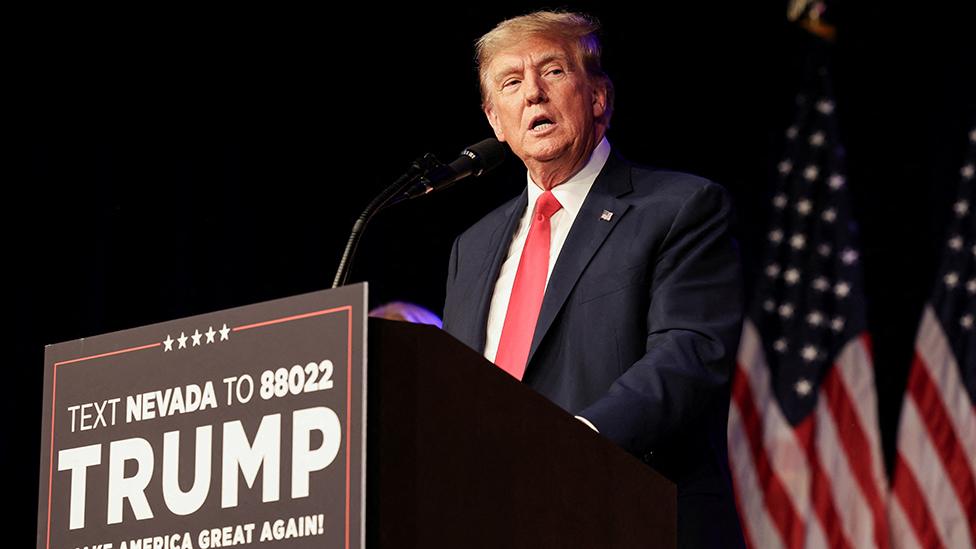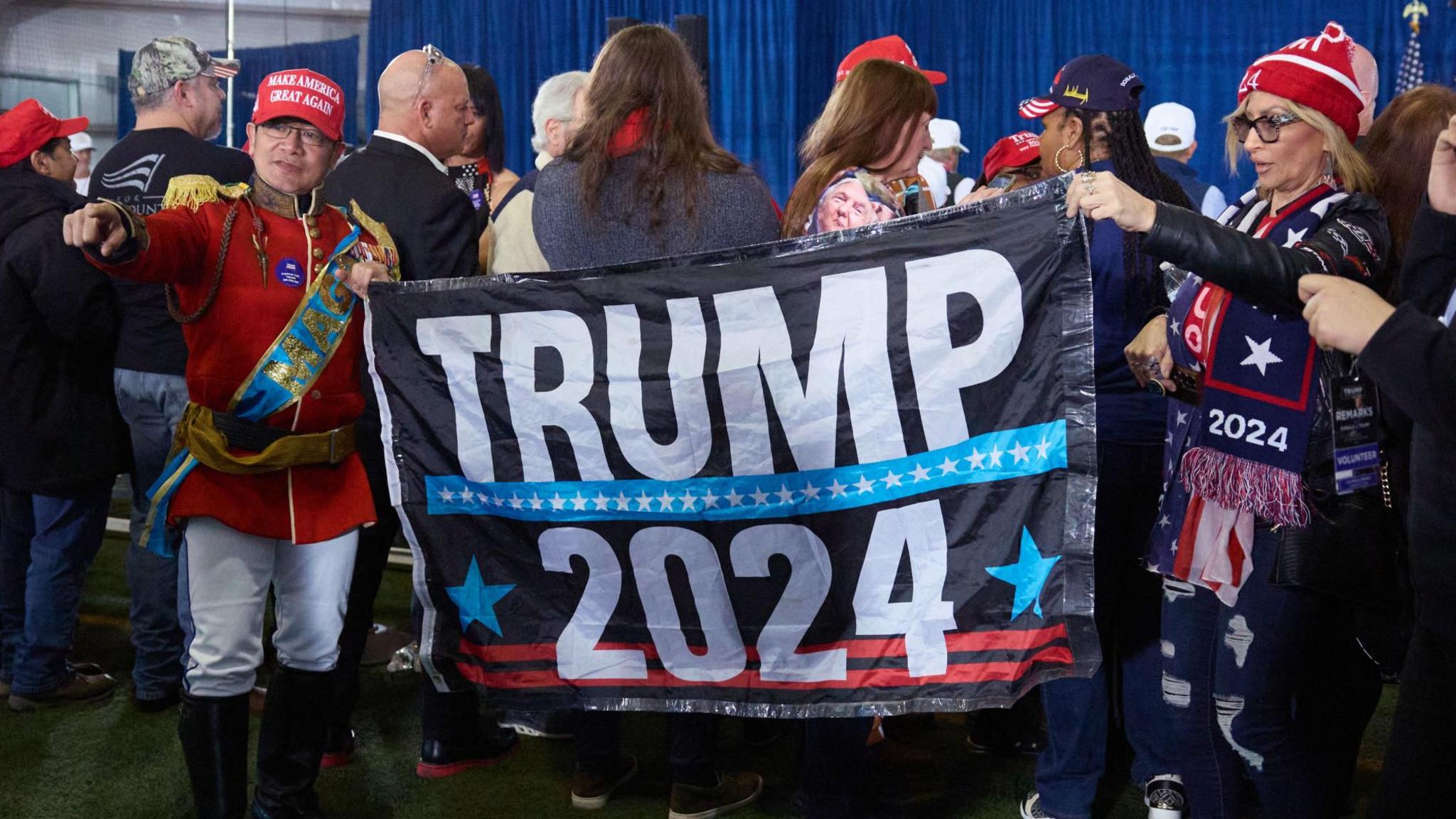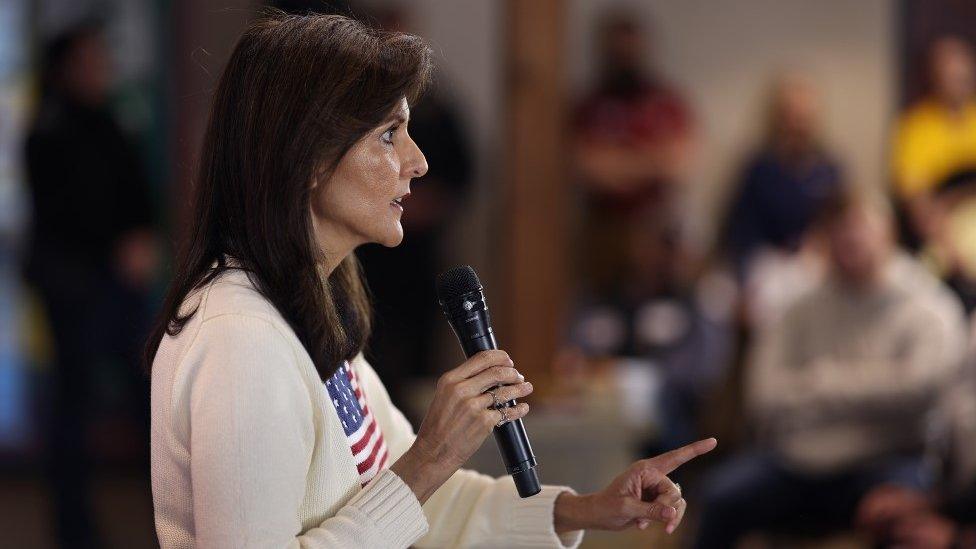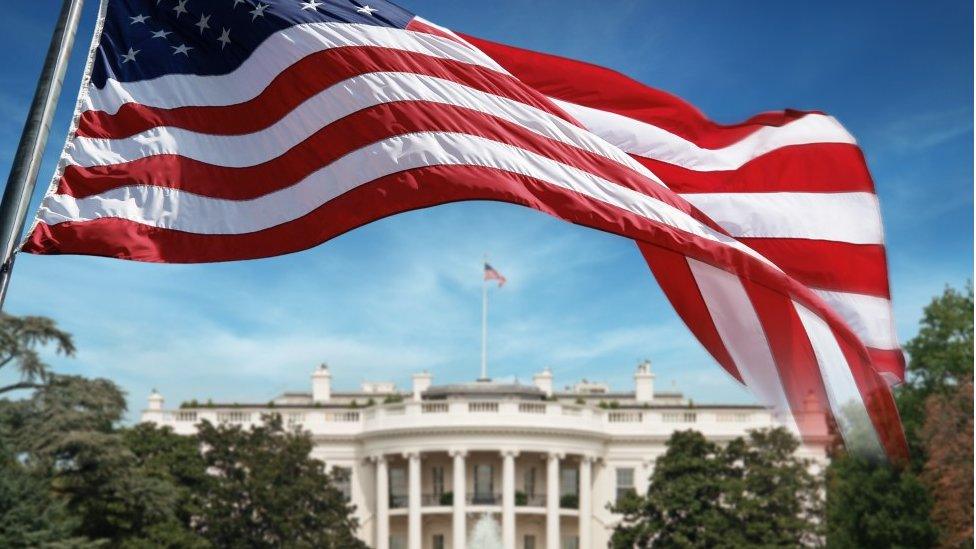US election: Donald Trump faces little competition and wins big in Nevada caucus
- Published

Donald Trump told a victory party that winning Nevada meant winning the general election
Facing little competition, former President Donald Trump won the Nevada Republican caucus by a large margin.
He only faced an unknown candidate, as Nikki Haley skipped the contest over an electoral process dispute between the party and the state.
With those favourable conditions, Mr Trump took over 99% of the vote.
Now he will likely receive all of Nevada's 26 delegates, and takes a large lead acquiring the 1,215 needed to become the Republican nominee.
Briefly addressing a victory party in Las Vegas on Thursday, Donald Trump said: "If we win this state, we easily win the election in November."
Two separate ballots were held in Nevada because of a dispute between the state Republican Party and the Democratic-controlled state legislature. Nevada lawmakers voted to change the state voting process from a caucus to a more traditional primary after there were some counting issues in 2020.
Donald Trump's only serious challenger left in the race, former South Carolina Governor Nikki Haley, had opted not to take part in the Nevada caucus and to appear in the state's primary vote instead. She skipped campaigning in the state because of the ongoing dispute.
Ms Haley's team said they did not take part in the caucus, claiming it had been "rigged for Trump". She did appear on the state primary ballot, which did not include Mr Trump's name, but her campaign limited their efforts in Nevada.
That, in part, contributed to Ms Haley's stinging loss to the "none of these candidates" in Tuesday's primary, which did not count towards picking a nominee but did buoy calls for her to drop out of the race.
The situation in Nevada caused confusion and frustration among voters and contributed to diminished turnout in both of Nevada's races.
It had been criticised by the state's Republican governor, who said there should have been a single ballot for voters.
But it still helped Mr Trump in his effort to recapture the Republican nomination. He has now won contests in three states - Nevada, Iowa and New Hampshire - making him the leading Republican candidate in November's general election.
He also won a Republican caucus in the US Virgin Islands, an unincorporated territory.
Although the result of the Nevada caucus was a foregone conclusion, the state will be hotly contested in the November presidential election. The vote is effectively guaranteed to be a rematch between 2020 candidates Donald Trump and Joe Biden.
Mr Trump's next stop will be South Carolina, where he will again go head to head against Nikki Haley.
Despite three defeats, she has vowed to fight on, arguing that Republican supporters want to see an alternative to Donald Trump and that "voters want an election, not a coronation".
Related topics
- Published5 February 2024

- Published7 February 2024

- Published31 January 2024
